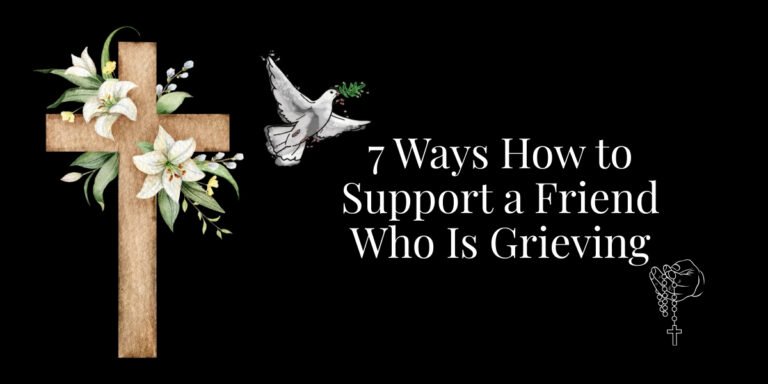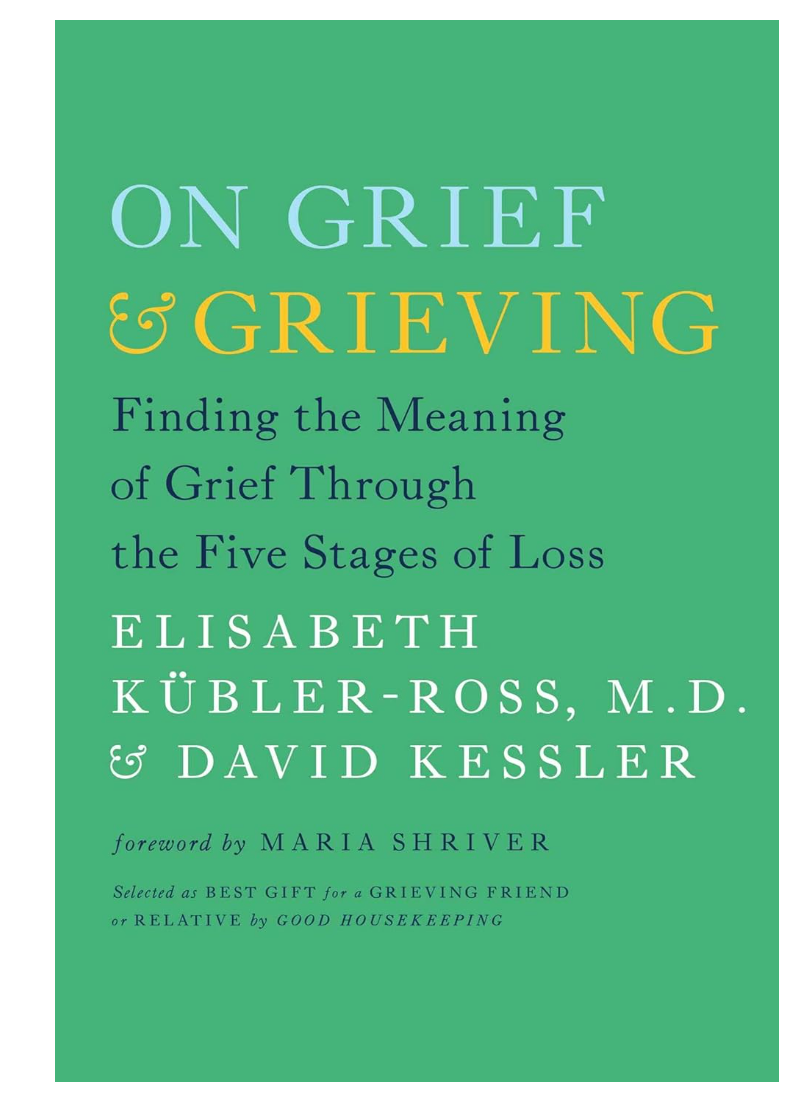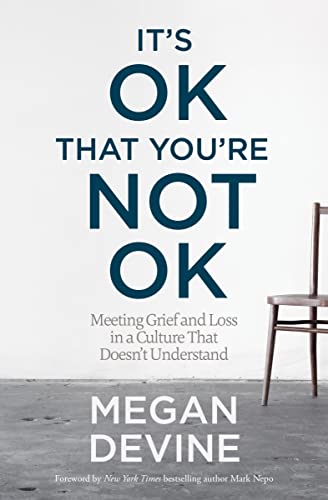
7 Ways How to Support a Friend Who Is Grieving
When someone we care about experiences loss, we often find ourselves at a crossroads—wanting desperately to help, yet feeling powerless in the face of their pain.
Grief is one of life’s hardest journeys. Watching a friend struggle through it can leave us wondering what to say, what to do, and how to show love without making things worse.
The truth is, we can’t take away their sorrow or bring back the one they’ve lost. But we can walk beside them with love, patience, and compassion.
There is no perfect formula for supporting a grieving friend. Still, there are meaningful, thoughtful ways to provide comfort and remind them they’re not alone. Knowing both **what to say to someone who is grieving—and what not to say—**can make a world of difference.

1. Understand That Grief Is Unique to Each Person
Grief doesn’t look the same for everyone. Some people cry openly and want to talk constantly about their loved one.
Others may retreat into silence, needing time alone to process. Some return to daily routines quickly, while others struggle for months before feeling ready.
There’s no “right” way to grieve and no timeline to follow. Avoid comparing their journey to your own or someone else’s. Phrases like “I know exactly how you feel” or “My aunt was fine after a month” may feel dismissive. Instead, acknowledge their unique experience:
- “I can’t imagine what you’re going through, but I’m here for you.”
- “Take all the time you need—I’ll walk with you through this.”
Respect their pace and their process. Your role isn’t to push them toward “getting better,” but to provide steady, compassionate support.

2. Be Present Without Trying to “Fix” Things
Sometimes, the greatest gift you can give is simply your presence. You don’t need perfect words or solutions. In fact, silence can often be more comforting than advice.
Let your friend lead the conversation. Listen without judgment. Give space for anger, sadness, guilt, or even relief—all of which are valid in grief.
Avoid clichés like “They’re in a better place” or “Everything happens for a reason.” Instead, use gentle honesty:
- “I’m so sorry for your loss.”
- “I’m here whenever you need me.”
- “I’ll always remember how [name] made us laugh.”
Sharing a genuine memory of their loved one can bring comfort and remind them their person’s life mattered.
3. Offer Practical Help in Specific Ways
In the fog of grief, even simple tasks can feel overwhelming. Instead of saying “Let me know if you need anything,” make concrete offers:
- Meals: “I’m dropping off dinner Wednesday night—does pasta sound good?”
- Household chores: “Can I come by Saturday to do laundry or dishes?”
- Childcare: “I can take the kids to school this week if that helps.”
- Errands: “I’m heading to the store. What can I pick up for you?”
Even small gestures—bringing coffee, sending flowers, or checking in with a text—can ease the weight of daily life.
4. Respect Their Space and Boundaries
Grief is exhausting. Your friend may crave company one day and solitude the next. Don’t take it personally if they decline invitations or go silent.
Show care without pressure:
- “No need to reply—I just want you to know I’m thinking of you.”
- “Would you like me to check in daily, or would once a week feel better?”
Respecting boundaries also means not pushing them to talk before they’re ready. Let them lead the way, and remind them you’ll be there when they’re ready.
5. Remember Important Dates and Anniversaries
As time passes, others may move on—but for your friend, birthdays, holidays, and anniversaries can reopen wounds. Remembering these moments shows deep care.
Mark dates in your calendar and reach out:
- “I know today marks one year since [name] passed. I’m holding you in my heart.”
- “I remember it’s [name]’s birthday next week. Would you like company, or some quiet time?”
Acknowledging these days—even years later—tells your friend they and their loved one are not forgotten.
6. Encourage Healthy Outlets for Healing
Without pressuring, gently encourage outlets that can bring comfort:
- Support groups, grief counseling, or faith-based resources.
- Gentle self-care—reminders to eat, rest, and move.
- Activities that reflect who they are—journaling, painting, walking in nature, prayer, or music.
The goal isn’t to “fix” their grief, but to offer tools that may help them carry it more gently.
7. Offer Long-Term Support and Consistency
Grief doesn’t end after the funeral. Many people feel forgotten as weeks and months pass. That’s when your friendship matters most.
Check in regularly—even six months or a year later—with simple reminders:
- “Thinking of you and [name] today.”
- “I know holidays are hard. Would you like company?”
Consistency shows you’re in it for the long haul, not just the early days of loss.
What Not to Say
Sometimes, the wrong words—though well-intentioned—can deepen pain. Avoid phrases like:
- “I know exactly how you feel.”
- “They’re in a better place.”
- “You need to be strong.”
- “Everything happens for a reason.”
- “At least they lived a long life.”
Instead, lean on empathy and simplicity: “I’m so sorry,” “I’m here,” or “I’m thinking of you.”
Conclusion: The Power of Simply Showing Up
Supporting a grieving friend isn’t about grand gestures or perfect words. It’s about showing up—consistently, compassionately, and without judgment.
Your presence says: You are not alone. Your loved one is remembered. I will walk with you through this.
In a world that often wants to rush past pain, choosing to stay present with someone in grief is a profound act of love.
Your friend may not always have the strength to thank you, but your steady support will become part of the foundation that helps them heal and rebuild.

FAQs: Supporting a Grieving Friend
1. What is the best thing to say to a grieving friend?
The best thing to say is something simple and sincere, such as “I’m so sorry for your loss” or “I’m here for you.” Avoid trying to explain their loss or minimize their pain.
2. How can I help a grieving friend who doesn’t want to talk?
Respect their silence while letting them know you care. Send a message like, “No need to reply, I just want you to know I’m thinking of you.” Being present without pressure can be deeply comforting.
3. What practical ways can I support a grieving friend?
Offer specific help like cooking meals, running errands, caring for children, or assisting with household tasks. Small acts of kindness often mean the most.
4. Should I bring up their loved one, or avoid mentioning them?
Most grieving people appreciate hearing their loved one’s name and memories. It reassures them that their loved one isn’t forgotten. Follow their lead and be sensitive to their response.
5. How long should I keep checking in on a grieving friend?
Grief doesn’t follow a timeline. Continue checking in for months or even years. Simple reminders like, “Thinking of you today” can make a big difference long after others have stopped reaching out.
6. What should I avoid saying to someone who is grieving?
Avoid phrases like “They’re in a better place,” “Everything happens for a reason,” or “I know how you feel.” These can feel dismissive. Stick to empathy and honesty.
7. How do I support a grieving friend during holidays and anniversaries?
Reach out before difficult dates with a message or invitation. Offer specific support like bringing dinner, spending time together, or giving them space if that’s what they prefer.





